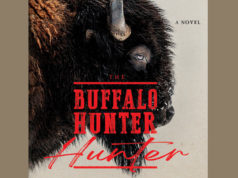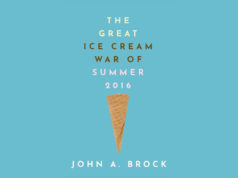This past week marked 200 years since the birth of Charles Dickens, and there were celebrations all over England. Some people, like the Archbishop of Canterbury, praised Dickens’ skill at caricature, while others hailed his commitment to social justice. These assessments aren’t wrong, but I think we may have lost sight of just what a great entertainer Dickens was. We shouldn’t. After all, the man was the most popular English-language author of his time, a canny self-marketer who made a fortune off book sales and public speaking tours in which he’d read from his novels. Yet the reverence that he’s been treated with by decades of being taught in schools has crusted over what palpitating, vibrantly alive entities his novels are.
He was a master of the cliffhanger. In the days before television, his serialized novels would leave readers eager for the next installment. Famously, crowds of New Yorkers waited on the docks for the ships from London bringing the latest chapters of The Old Curiosity Shop and called out to the sailors to see if Little Nell was dead. When Oliver Twist was shot halfway through the novel that bears his name, Dickens waited two chapters until he revealed whether the boy had lived or died. Thriller writers might do well to read over the way Dickens stages the murder of Tigg Montague in Martin Chuzzlewit, or the climax of Bleak House, when Inspector Bucket and Esther Summerson make a frantic journey on a winter’s night to find Lady Dedlock before she kills herself.
Though some of his heroes are insipidly virtuous (Nicholas Nickleby, Barnaby Rudge) and the same goes double for his martyr characters (Nancy in Oliver Twist, Stephen Blackpool in Hard Times, Pip in Bleak House), these are more than made up for by the vivid supporting characters who burst forth from his pages. His use of the language is often breathtaking, as in when Miss Flite, the old woman driven mad by an interminable lawsuit in Bleak House, names her caged birds Hope, Joy, Youth, Peace, Rest, Life, Dust, Ashes, Waste, Want, Ruin, Despair, Madness, Death, Cunning, Folly, Words, Wigs, Rags, Sheepskin, Plunder, Precedent, Jargon, Gammon, and Spinach. (That last one is a great touch of insanity.) Dickens isn’t afraid of outrageousness in his plotting, either; in the same book, the hoarder Mr. Krook dies of spontaneous combustion. His books are often overstuffed with subplots and characters, and while they’re extraneous to the main plot, they’re so vivid that they don’t feel unnecessary.
You’re probably familiar with A Christmas Carol, Oliver Twist, and the atypical A Tale of Two Cities, but there’s more interesting stuff to be found elsewhere. Hard Times is Dickens’ shortest novel, as well as one of his most brutal, and it seems to speak particularly to our times. Observe Josiah Bounderby, the self-made businessman bent on denying other poor people the chance to become rich like himself, or Bitzer, the pupil who betrays his mentor after learning from him that naked self-interest and greed get you ahead in the world. These piquant villains help give traction to an uncompromising story about a pedantic man who pays a heavy price for educating his children in misguided principles. (“Teach these boys and girls nothing but Facts. Facts alone are wanted in life. Plant nothing else, and root out everything else. You can only form the minds of reasoning animals upon Facts: nothing else will ever be of any service to them.”) The same iniquities that spurred Karl Marx were the ones that Dickens exposed, but the Englishman’s work is far more readable than Das Kapital.
My favorite Dickens novel, though, is Bleak House, which I reread every so often and find to be a towering masterpiece. Dickens switches between two narrators throughout the novel. one an omniscient third-person narrator and the other his heroine Esther Summerson. Some modern readers find Esther too timid and self-effacing, but I find her evasions interesting, if annoying. The story about a lawsuit stuck in a Kafkaesque legal and bureaucratic dead end is a vehicle for capturing characters at every stratum of English society, and it builds to a remorseless end, with Inspector Bucket serving as a forerunner for detective heroes all over the world. Along the way, we get superb sketches of people like Harold Skimpole (a vaguely aesthetic hanger-on who constantly describes himself as a “child” but sells out his friends for money) and Mrs. Jellyby (a philanthropist who neglects her own children to raise funds for African charities).
There’s no shortage of film and TV adaptations of Dickens. The first I’d recommend is David Lean’s 1948 version of Oliver Twist. He captures the squalor of 19th-century London in phantasmagoric terms, but the part I like is the way it handles Bill Sikes’ killing of Nancy. In all the other versions of the story, he kills her because he’s evil. In this one, he kills her because he’s terrified of going back to prison, and in his fear he lashes out at the one person who cares about him. (Robert Newton plays Sikes with a severe nervous twitch.) That’s not what Dickens wrote, but it feels more real. Carol Reed’s 1968 musical Oliver! is still known as the movie that won the Best Picture Oscar instead of Kubrick’s 2001, but it’s pretty good for what it is nonetheless. The singing and dancing somehow makes Oliver Reed’s Sikes all the more menacing for his refusal to join in. George Cukor’s 1936 version of David Copperfield is more than a bit square, but it has the incomparable casting of W.C. Fields as Mr. Micawber. A Christmas Carol has been adapted, tweaked, and modernized too many times to count. Stick with the 1951 film (starring an unhinged Alastair Sim) for a straight-up version, or go to Richard Donner’s 1988 comedy Scrooged (starring Bill Murray) for a modern take on the story. The 2005 TV miniseries adaptation of Bleak House is a bit overemphatic at times, but it’s a streamlined take on the story that will appeal to contemporary sensibilities. It also has Gillian Anderson as Lady Dedlock and Carey Mulligan as Ada Clare. In any format, now’s a good time to rediscover one of history’s greatest novelists.












